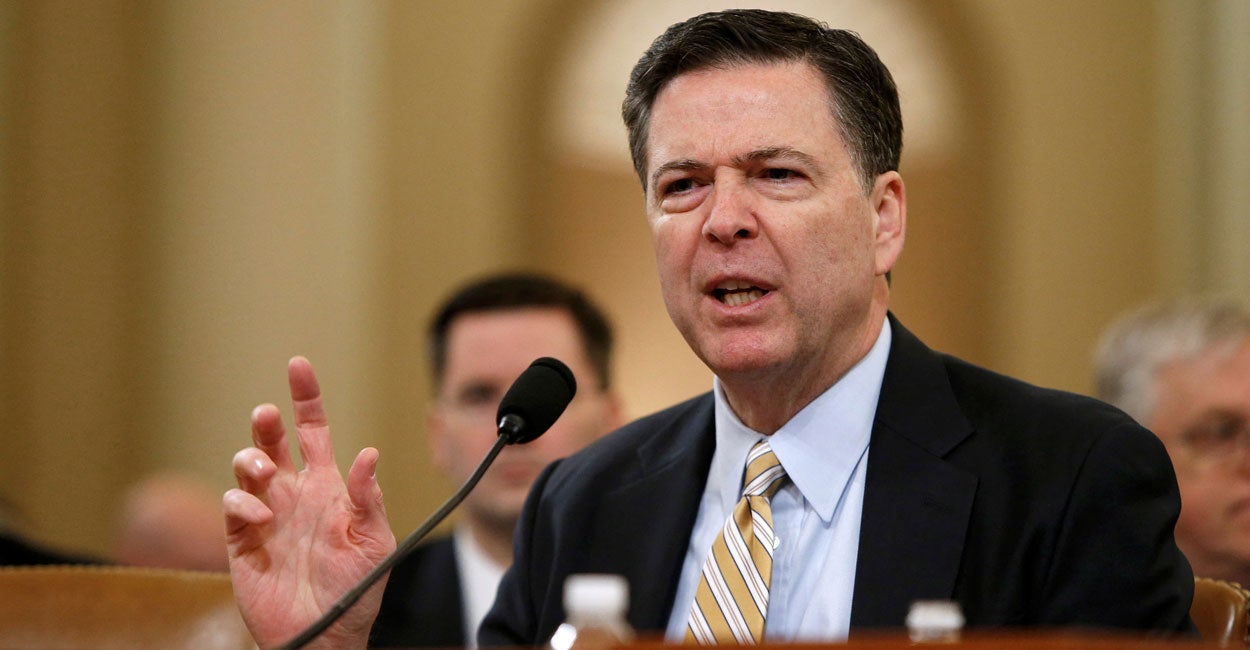
www.dailysignal.com
Judge Dismisses Letitia James and James Comey Cases. What Next?
Because Democrat senators have refused to confirm many of President Donald Trump’s preferred picks to serve as U.S. attorneys around the country, his administration has instead been forced to rely on the arcane, convoluted, confusing mechanisms available to temporarily fill those positions.
Given the unprecedented nature of this Democrat obstruction and the conflicting case law in this area, those seeking to avoid criminal charges have, of course, challenged many of these appointments.
And earlier today, a Clinton-appointed South Carolina judge, Cameron McGowan Currie, sitting by special designation in the Eastern District of Virginia, held that Lindsey Halligan had been improperly appointed to serve as the U.S. attorney for that district.
Under the Federal Vacancies Reform Act, the attorney general can appoint an interim U.S. attorney for up to 120 days, after which a successor is typically appointed by the district court until the vacancy is filled by a Senate-confirmed U.S. attorney. In this case, following the resignation of the Biden-appointed U.S. attorney, Erik Seibert was appointed as interim U.S. attorney in that district. On May 9, less than two weeks before the 120-day period lapsed on May 21, the district court appointed Seibert to continue in that role.
In early September, Seibert announced that he was resigning from the position. Following Seibert’s departure, Attorney General Pam Bondi appointed Halligan as the interim U.S. attorney. Shortly thereafter, grand juries returned indictments against New York Attorney General Letitia James and former-FBI Director James Comey.
Significantly, Halligan was the only person claiming to represent the government who presented the charges to the grand jury.
Both James and Comey moved to dismiss the indictments that had been returned against them, arguing that Halligan had not been properly appointed at the time she made her grand jury appearances. They argued, and the judge agreed, that the best reading of the statute is that Bondi’s authority to appoint an interim U.S. attorney expired on May 21. The government, of course, disagrees with that interpretation. But the judge rejected the government’s argument that the statute allowed Bondi to make a series of interim appointments, restarting the 120-day clock with each appointment. Because the judge concluded Halligan was essentially a private citizen when she appeared before the grand jury, the indictments that were returned were invalid.
As a result, he dismissed—without prejudice—the indictments she secured against both James and Comey.
Where things go from here becomes somewhat murky—though the cases likely will continue.
Ordinarily, James and Comey could simply be re-indicted because the judge dismissed their cases “without prejudice.” Here, though, James and Comey are both asserting vindictive prosecution and other defenses to their indictments. And Comey, in particular, is asserting a statute-of-limitations defense to his re-indictment.
Essentially, he’s saying that any indictment had to be brought by Sept. 30, 2025, and that because the government brought no valid indictment by that date, the case must be dismissed.
As other commentators have pointed out, however, 18 U.S.C. § 3288 may provide an avenue to re-indict Comey. It provides:
“Whenever an indictment or information charging a felony is dismissed for any reason after the period prescribed by the applicable statute of limitations has expired, a new indictment may be returned in the appropriate jurisdiction within six calendar months of the date of the dismissal of the indictment or information, … which new indictment shall not be barred by any statute of limitations.”
While this provision does contain exceptions, it’s not clear that any of those would apply.
Moreover, Bondi may be able to validly appoint Halligan to oversee the prosecutions. Bondi can appoint Halligan to serve as the first assistant U.S. attorney (chief deputy) in the Eastern District of Virginia, which in turn, means that she would become the “acting” U.S. attorney (instead of the “interim” U.S. attorney) because that office would be vacant. Bondi recently did something similar for the U.S. attorney’s office overseeing Los Angeles.
For its part, the Justice Department has contended that all of this legal wrangling is unnecessary since higher-ranking validly appointed DOJ officials retroactively ratified Halligan’s actions. The Justice Department can appeal this judge’s decisions to dismiss these indictments, or it might simply choose to re-indict James and Comey.
Regardless of which path it chooses, it’s clear that these cases are far from over despite the judge’s ruling dismissing the indictments.
The post Judge Dismisses Letitia James and James Comey Cases. What Next? appeared first on The Daily Signal.










